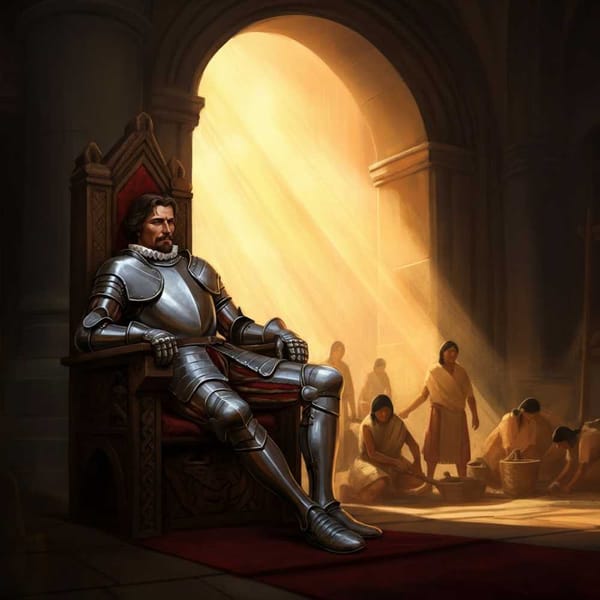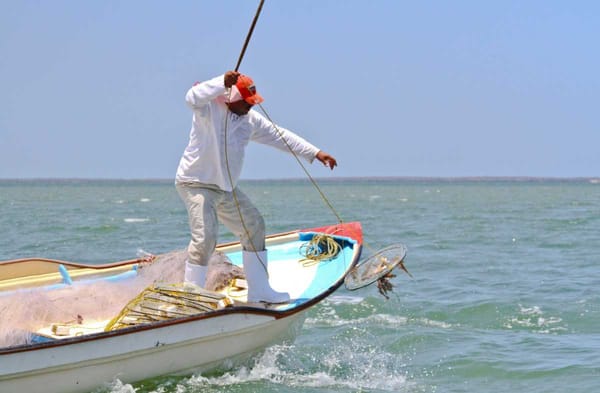Ignacio López Rayón: A Military and Political Leader
Ignacio López Rayón (1773-1832) was appointed Commander of the insurgent troops by Miguel Hidalgo I Costilla. After the independence was consummated, he was Intendant of the Province of San Luis Potosí, Deputy to the Constituent Congress, and Military Commander of Jalisco.

At the dawn of the Independence movement, several questions were raised about the reorganization of the territory of New Spain in the face of the Napoleonic invasion of the metropolis in 1808, whose immediate consequence was the abdication of the Spanish monarchs to the throne.
In that same year, a series of Creole intellectuals emerged in the Colony, willing to fundamentally question the status quo, characterized by a rigid pyramidal order headed by the Peninsula, leaving the former at a clear disadvantage before any possibility of ascent in the political or religious structure within the viceregal society.
In September 1810, exactly two years after the peninsular group endorsed its policy of exclusion to the detriment of Creole aspirations to ascend within the colonial political structures, the priest Miguel Hidalgo hastily initiated a mass revolution in the town of Dolores.
The rapid advance of the angry mob through the Bajío region, as well as the victories obtained against the royalist forces, caused the insurgency to grow exponentially and people from all social strata in the Colony joined the movement.
José Ignacio Antonio López Rayón y López Aguado, joined the movement led by Hidalgo shortly after the Independence struggle began; it is important to clarify that the original project of the group of Creole intellectuals who indirectly promoted the armed movement did not seek total separation from the Spanish Crown, but to achieve political autonomy that would allow the inclusion of more social groups in decision making, thus breaking with the dictatorship of peninsular interests that for three centuries remained within the territory of New Spain.
López Rayón is one of the insurgent characters who positioned himself on the side of those in favor of recognizing the authority of Fernando Séptimo, abandoning the idea of seeking total independence from the peninsular Crown.
On the other side of the insurgent side, characters such as José María Morelos, Hidalgo's direct successor, bet on a republican position and the divorce of the legitimizing figure of Ferdinand VII in the political organization of New Spain, both inside and outside the territory.
Given the above, the Constituent Congress promoted by Morelos and other high-ranking insurgents approved the Decree for the Liberty of Mexican America in 1813, which consolidated the purpose of making the New Spanish territory independent from the decisions of the metropolis.
Rayón had emphasized, in the original insurgent project, the recognition and loyalty to the monarchy of Fernando VII; this could be verified in the formation of the Supreme National American Junta of 1811, of which he was the undisputed ideologist.
According to López Rayón's conception, this insurgent government junta was to represent the monarchical rights of Fernando VII and maintain the government in his name while fighting against French intervention in the Spanish kingdom.
In his Constitutional Elements, elaborated on April 30, 1812, Rayón exposes the most relevant points to consider when elaborating on a constitution, but it would not be a constitution of federal character, like the one that would be approved in our country twelve years later in 1824, but a document of monarchical dyes, as it insisted on the recognition of the investiture of Fernando VII in the territory of the former New Spain.
Point number 5 of the document confirms the original political pretension of the Creole groups headed by the Syndic of the Mexico City City Council, Francisco Primo de Verdad (murdered in the jail of the archbishopric of Mexico City, due to the coup d'état of Gabriel de Yermo in 1808) and of the Querétaro conspiracy to which Hidalgo, Allende, the Corregidor of that city and his wife, among other characters, belonged.
Rayón wrote:
Sovereignty emanates immediately from the people and resides in the person of Lord Ferdinand VII, and its exercise in the Supreme American National Congress.
The postulate of this insurgent leader was to achieve autonomy and not independence as such from the Spanish Crown. For him and the group that supported him, having the shelter of the metropolis would avoid political catastrophe and governmental anarchy. However, the independence project promoted by Morelos the following year would be the one that would finally triumph, when the separation from the Spanish Crown was achieved in September 1821.




